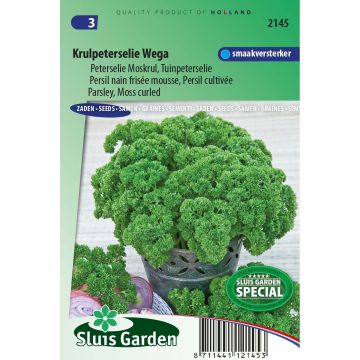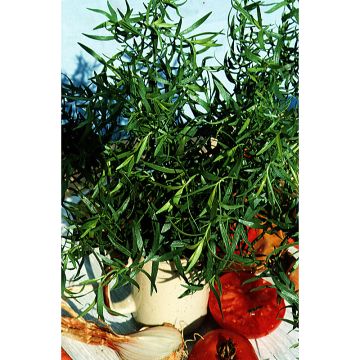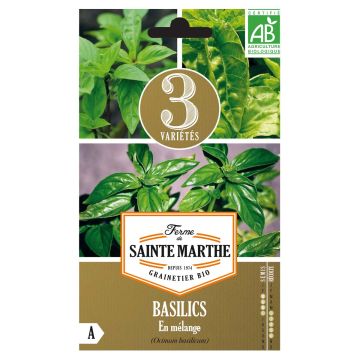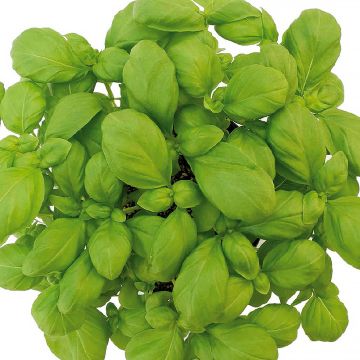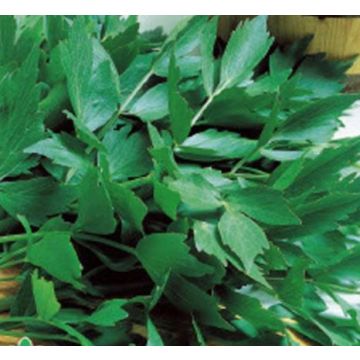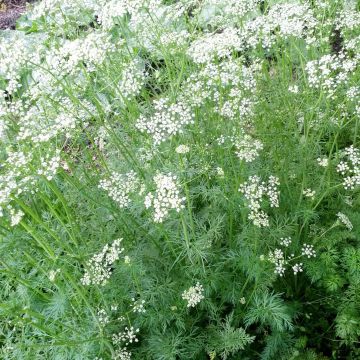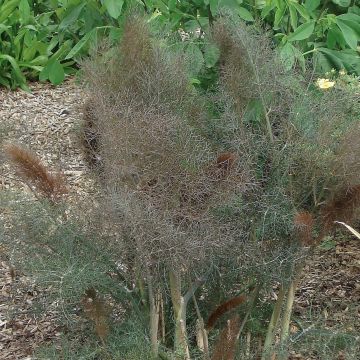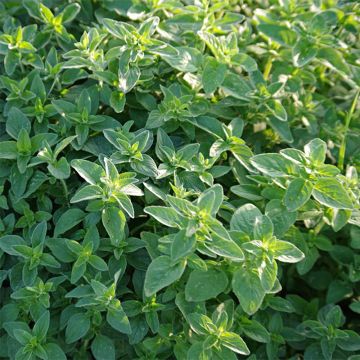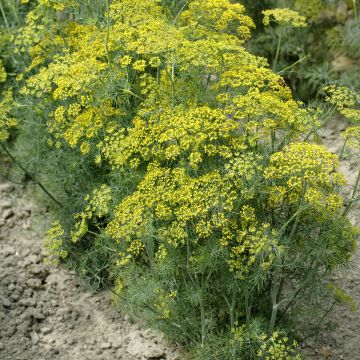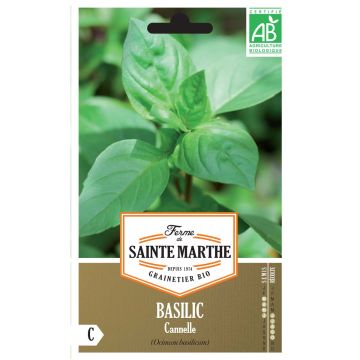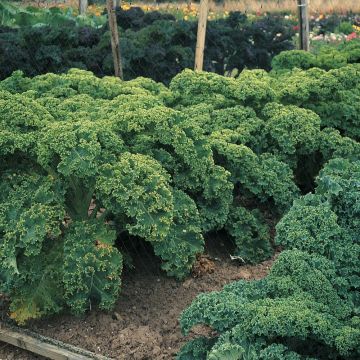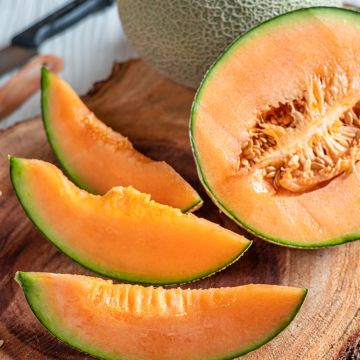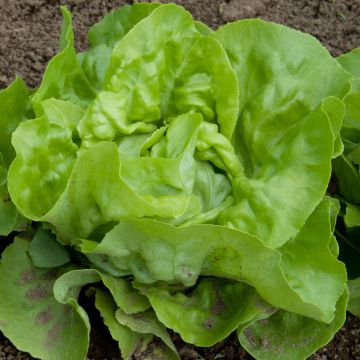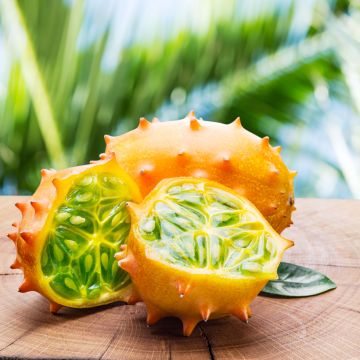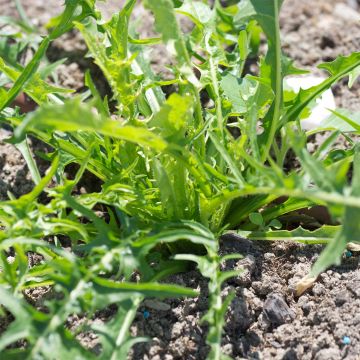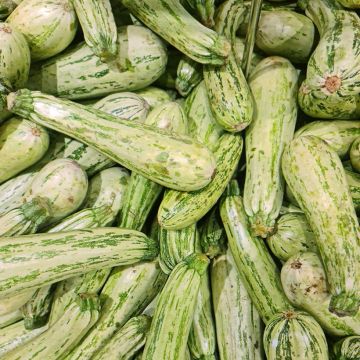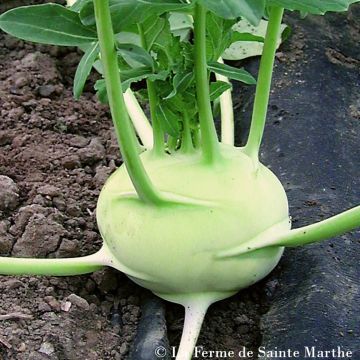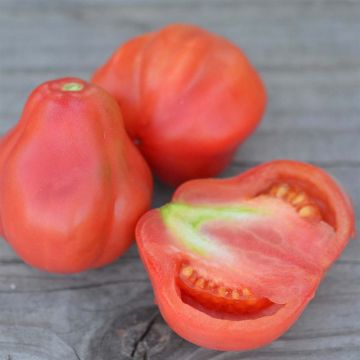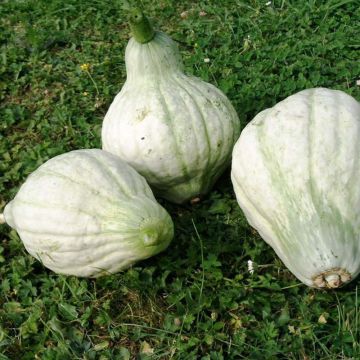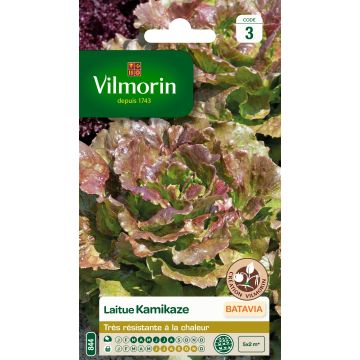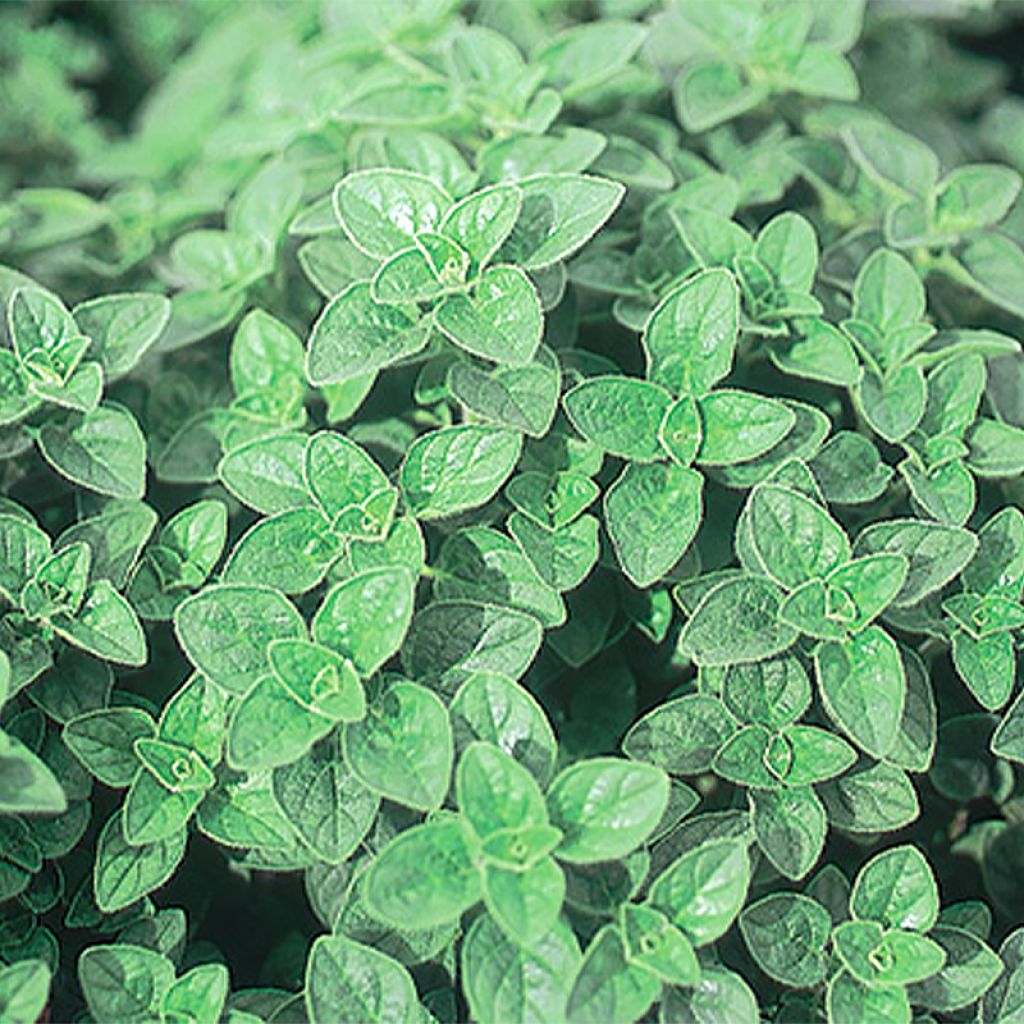

Origan vulgaire Bio - Graines d'Origanum vulgare
Origanum vulgare
Origanum vulgare
Wild Marjoram, Oregano
This item cannot be shipped to the selected country
Dispatch by letter from €3.90
More information
Schedule delivery date,
and select date in basket
This plant carries a 6 months recovery warranty
More information
We guarantee the quality of our plants for a full growing cycle, and will replace at our expense any plant that fails to recover under normal climatic and planting conditions.
Seed-only orders are dispatched by sealed envelope. The delivery charge for seed-only orders is €3.90.
Description
The common oregano, in Latin Origanum vulgare, is a hardy perennial aromatic plant, also called wild marjoram or perennial marjoram. It should not be confused with marjoram, Origanum majorana, although the medicinal properties of both plants are similar. Oregano is part of the Herbes de Provence. It is a classic ingredient in Mediterranean cuisine, especially Italian. It is indispensable for flavoring pizzas. Sowing from March to May.
Native to western and southern Europe, where it grows wild, oregano is a perennial plant that belongs to the Lamiaceae family, just like thyme and mint. It forms a fragrant clump about 50cm (20in) tall and wide. Its foliage consists of round to oval, dark green leaves. From June to September, oregano is adorned with pretty pink flowers that may have a purplish hue. It is hardy down to about -17°C (1.4°F).
Oregano is a resilient and easy-to-grow herb. It thrives in sunny locations and prefers poor, light, even rocky, well-drained soils. It is not afraid of limestone. If your soil is rather damp and clayey, we recommend growing it in a pot or on a small mound where it will thrive.
It should be noted that oregano is also known as wild marjoram or red tea, which often leads to confusion with its cousin, garden marjoram or shell marjoram (Origanum majorana), which is less hardy and has a different scent.
Harvest: Oregano is harvested from May to October by cutting off branches with scissors.
Preservation: Oregano is traditionally preserved by drying. This is a simple and quick process that you can replace with freezing if you find it more convenient.
The gardener's tip: In the garden, don't hesitate to mix different types of plants by placing some herbs like oregano in the middle of your perennial flower beds or in rockeries. It looks very pretty, and the sometimes strong scents of aromatic plants often have the ability to repel insects that may attack more delicate plants like certain roses.
Report an error about the product description
Harvest
Plant habit
Foliage
Botanical data
Origanum
vulgare
Lamiaceae
Wild Marjoram, Oregano
Cultivar or hybrid
Perennial
Other Herb seeds
Planting and care
Sowing:
Oregano is sown from March to May at a temperature between 13 and 16°C (55.4 and 60.8°F). Germination generally takes 18 to 24 days.
Sowing is done in a tray filled with good seed compost, placed in full light. The seeds are lightly buried and just covered with a pinch of compost or vermiculite. The tray should not be covered as Oregano is sensitive to humidity, so keep the substrate moist but not waterlogged.
When the seedlings seem strong enough to handle, transplant them into pots and gradually acclimate them to cooler conditions.
Transplanting to the garden or pots is done when the plants are well established. They can potentially spend their first winter under a cold frame.
Cultivation:
Oregano is a hardy and easy-to-grow herb. It thrives in full sun and prefers poor, light, even rocky, and well-drained soils. It is not sensitive to limestone. If your soil is rather moist and clayey, we recommend growing it in a pot or on a small mound where it will thrive.
Seedlings
Care
Intended location
-
, onOrder confirmed
Reply from on Promesse de fleurs
Vegetable seeds
Haven't found what you were looking for?
Hardiness is the lowest winter temperature a plant can endure without suffering serious damage or even dying. However, hardiness is affected by location (a sheltered area, such as a patio), protection (winter cover) and soil type (hardiness is improved by well-drained soil).

Photo Sharing Terms & Conditions
In order to encourage gardeners to interact and share their experiences, Promesse de fleurs offers various media enabling content to be uploaded onto its Site - in particular via the ‘Photo sharing’ module.
The User agrees to refrain from:
- Posting any content that is illegal, prejudicial, insulting, racist, inciteful to hatred, revisionist, contrary to public decency, that infringes on privacy or on the privacy rights of third parties, in particular the publicity rights of persons and goods, intellectual property rights, or the right to privacy.
- Submitting content on behalf of a third party;
- Impersonate the identity of a third party and/or publish any personal information about a third party;
In general, the User undertakes to refrain from any unethical behaviour.
All Content (in particular text, comments, files, images, photos, videos, creative works, etc.), which may be subject to property or intellectual property rights, image or other private rights, shall remain the property of the User, subject to the limited rights granted by the terms of the licence granted by Promesse de fleurs as stated below. Users are at liberty to publish or not to publish such Content on the Site, notably via the ‘Photo Sharing’ facility, and accept that this Content shall be made public and freely accessible, notably on the Internet.
Users further acknowledge, undertake to have ,and guarantee that they hold all necessary rights and permissions to publish such material on the Site, in particular with regard to the legislation in force pertaining to any privacy, property, intellectual property, image, or contractual rights, or rights of any other nature. By publishing such Content on the Site, Users acknowledge accepting full liability as publishers of the Content within the meaning of the law, and grant Promesse de fleurs, free of charge, an inclusive, worldwide licence for the said Content for the entire duration of its publication, including all reproduction, representation, up/downloading, displaying, performing, transmission, and storage rights.
Users also grant permission for their name to be linked to the Content and accept that this link may not always be made available.
By engaging in posting material, Users consent to their Content becoming automatically accessible on the Internet, in particular on other sites and/or blogs and/or web pages of the Promesse de fleurs site, including in particular social pages and the Promesse de fleurs catalogue.
Users may secure the removal of entrusted content free of charge by issuing a simple request via our contact form.
The flowering period indicated on our website applies to countries and regions located in USDA zone 8 (France, the United Kingdom, Ireland, the Netherlands, etc.)
It will vary according to where you live:
- In zones 9 to 10 (Italy, Spain, Greece, etc.), flowering will occur about 2 to 4 weeks earlier.
- In zones 6 to 7 (Germany, Poland, Slovenia, and lower mountainous regions), flowering will be delayed by 2 to 3 weeks.
- In zone 5 (Central Europe, Scandinavia), blooming will be delayed by 3 to 5 weeks.
In temperate climates, pruning of spring-flowering shrubs (forsythia, spireas, etc.) should be done just after flowering.
Pruning of summer-flowering shrubs (Indian Lilac, Perovskia, etc.) can be done in winter or spring.
In cold regions as well as with frost-sensitive plants, avoid pruning too early when severe frosts may still occur.
The planting period indicated on our website applies to countries and regions located in USDA zone 8 (France, United Kingdom, Ireland, Netherlands).
It will vary according to where you live:
- In Mediterranean zones (Marseille, Madrid, Milan, etc.), autumn and winter are the best planting periods.
- In continental zones (Strasbourg, Munich, Vienna, etc.), delay planting by 2 to 3 weeks in spring and bring it forward by 2 to 4 weeks in autumn.
- In mountainous regions (the Alps, Pyrenees, Carpathians, etc.), it is best to plant in late spring (May-June) or late summer (August-September).
The harvesting period indicated on our website applies to countries and regions in USDA zone 8 (France, England, Ireland, the Netherlands).
In colder areas (Scandinavia, Poland, Austria...) fruit and vegetable harvests are likely to be delayed by 3-4 weeks.
In warmer areas (Italy, Spain, Greece, etc.), harvesting will probably take place earlier, depending on weather conditions.
The sowing periods indicated on our website apply to countries and regions within USDA Zone 8 (France, UK, Ireland, Netherlands).
In colder areas (Scandinavia, Poland, Austria...), delay any outdoor sowing by 3-4 weeks, or sow under glass.
In warmer climes (Italy, Spain, Greece, etc.), bring outdoor sowing forward by a few weeks.

































